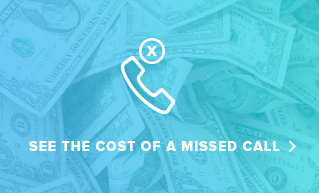In today’s fast-paced, competitive market, consumers have more choice than ever before. Look no further than the salad dressing aisle of your local grocery store for a hint at how spoiled for choice the average shopper is. Hundreds of brands at various price points beckon each person to try their flavor. Even in less crowded markets, consumers are no longer limited to local options. In an increasingly global society, more and more companies are competing with international brands.

It’s this high level of competition that makes brand loyalty more important than ever. There is always a chance for a competitor to undercut you, but your brand cannot be replicated. The best kind of brand loyalty feels like a friendship based on trust, respect and effort. Those kinds of relationships can’t be built overnight, which is one of the many reasons your business plan needs to focus on brand loyalty.
Defining Brand Loyalty
We all have brands we love. When a certain company makes a product you can’t live without, it’s difficult to imagine ever buying from a competitor. That kind of loyalty is incredibly valuable, but it’s also incredibly hard to come by. For every company like Apple or Heinz, though, there’s a dozen more LG or Hunts. Achieving high levels of customer retention is something every company should strive towards. Simply put, brand loyalty is the reason why we keep coming back to certain products and companies over other options.
Strategies
There are dozens of ways to increase brand loyalty. If you’re hoping to improve your company’s standing in the eyes of your customers, though, improving customer service should be at the top of your list of strategies. When a customer has a phenomenal experience with your employees, they’ll think back to the encounter fondly and be more likely to come back.
One way to up the odds of a positive customer service experience is to ensure you’re there when you’re needed most. There’s nothing more frustrating than calling a business with a problem and being sent to voicemail. A live telephone answering service provides an easy solution to this problem. Whether you’re a small startup or a billion-dollar franchise, customers will appreciate the opportunity to chat with a helpful professional in their time of need. This level of respect for your customers is the first building block of brand loyalty.
Continue your mission by offering great deals for return customers. Because consumers have so many options from which to choose, they believe they should be rewarded for their loyalty to a given brand. Use this opportunity as a chance to build brand loyalty. Offer special deals and discounts for repeat customers, and consider setting up a rewards program. By giving repeat customers promotions and deals that others aren’t eligible for, you send a clear message: we value you and your business.
Research from the Harvard Business Review shows that a majority of consumers want to form relationships with brands based on their values. Companies with clear value systems whose goals are backed up by their actions are inherently easier to trust. By sharing your company’s values with the world, you bring a sense of humanity to what might normally seem like a faceless corporate entity. By making your company seem more human, you increase brand loyalty and sales.
Why Branding Matters
Customer loyalty isn’t easily won. In fact, it can be so challenging to earn the hearts and minds of customers that many companies opt not to prioritize it at all. This is a mistake. In a world where competition is fierce, the relationships formed with customers can provide the edge you need to stay relevant.
Loyal customers spread the word about your company. Consider, for example, the recommendations you get from friends versus an ad on a billboard. You’re far more likely to follow up on the advice you get from friends. Loyal customers provide a kind of viral, word of mouth marketing that’s difficult to replace.
A loyal customer is also one that comes back to your products or services time and time again. Rather than patronize your business once or twice, these brand fans will do business with you more often than they might even need, just to support your company. When times are tough or the future becomes uncertain, these loyal customers can serve as a much-needed safety net.
The impact of brand loyalty can’t be understated. If you hope to be successful in the long term, your business plan must include strategies for increasing brand loyalty. How are you working to ensure your customers stay loyal to your brand? How are you returning the favor? Answering these simple questions will give you the start you need to build long-lasting, meaningful customer relationships.


